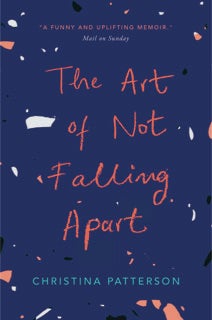
I was writing up an interview when I got the call. Five minutes later, I felt as if I was falling off a cliff.
The letter had been bad enough. The letter had talked about “synergies” and “consultation”. The “synergies”, it said, would “reduce costs”. And now the editor was telling me, in a cold, clear voice, that he wanted “to freshen the pages up”.
Most journalists know their days are numbered. Many newspapers were haemorrhaging cash even before they decided to give their “content” away for free.
When I decided to give up my nice job as director of an arts organisation to go and open jiffy bags at The Independent, I knew there was a risk. I had ten good years. Or perhaps, to be specific, I had eight good years and then two much less pleasant ones after a change of regime.
Newspapers are like a medieval fiefdom. It all depends on who’s in and who’s out. When I saw the film The Favourite last week I couldn’t work out why it all seemed so familiar. Later, it hit me. Oh yes, the inner court! Oh yes, the scurrying to meet whims!
I shouted at the editor. He threatened to call security. And that was that. No being “banged out”. No lovely leaving party, with speeches. No witty “front page”. The next day, I had a call from Harriet Harman’s chief of staff.
Harriet was, she told me, ready to talk to me for my series of interviews on women and power. I was wearing torn leggings and a stripy Primark top when I told the then shadow prime minister that I wouldn’t be doing the series, since I didn’t have any power any more. I didn’t, in fact, have a job.
I lost eight pounds in four days and didn’t stop shaking for two weeks.
The week before, I had taken part in a seminar at the House of Commons. I had presented a film on The One Show to coincide with the release of the Francis report. I had been writing a column for seven years. I had interviewed Nobel prize-winners and politicians.
Five weeks after that meeting with the editor, I heard that I’d been shortlisted for the Orwell Prize. Nobody told me. The newspaper didn’t announce it. I found out about it on Twitter.
For the next few months, I tried not to sound desperate as I sent emails into the ether. I didn’t have a partner. I didn’t have a family. There was no-one else to pay the mortgage or pick up the bills. My job was my livelihood, of course, but it also felt like a huge part of my identity.
When I’d interviewed Gordon Brown, not long after he left office, a reader had written to the newspaper to say “this is what journalism is for”. At the time, I’d thought: oh that’s what I’m for. I didn’t know what I was for any more.
It soon became clear that what was on offer was essentially piecework at a fraction of my former rate. There wouldn’t be another staff job with a nice salary. There wouldn’t be a fat contract for a column. I could pitch ideas, perhaps on “women’s issues”, and, if I was really lucky, my email might get a reply. It was back to being a jobbing hack and it sucked.
That was six years ago. Since then, I’ve had no guaranteed regular income.
At one point I was so exhausted with the effort of trying to get work that I rented out my flat on Airbnb and slept in friends’ spare rooms. But gradually things started to get better.
I did carry on doing a fair bit of journalism, but I’ve also I done things I’ve never done before. I’ve interviewed coffee farmers in Ethiopia for a coffee company, talked to nuns and trafficked sex workers in Sicily for a charity, and run workshops on subjects I’d barely heard of before. You can, it turns out, go quite a long way by using Google and saying “yes”.
 And I’ve written a book. The Art of Not Falling Apart starts with my dramatic departure from The Independent and is a mix of my own experiences, in the two years after I lost my job, and interviews with other people who’ve had to cope when life has gone wrong.
And I’ve written a book. The Art of Not Falling Apart starts with my dramatic departure from The Independent and is a mix of my own experiences, in the two years after I lost my job, and interviews with other people who’ve had to cope when life has gone wrong.
I talked to Grant Feller, who was fired from his job at the Daily Express and now runs a successful media company. I talked to Frieda Hughes, daughter of Ted Hughes and Sylvia Plath about losing her entire family, coping with the fame of her parents and having the courage to write poetry anyway.
I talked to my friend Winston about breaking his back after falling through a glass ceiling and landing on a purple coffin. Their stories sometimes made me cry and sometimes made me laugh – and taught me so much.
It’s bloody awful to lose a job. If anyone ever tells you it isn’t, feel free to smash them in the face. It’s particularly tough as a journalist, because journalists can feel like a breed apart.
After the adrenalin of the newsroom, quite a lot of other environments seem boring. I’m sorry to say this, but it’s true.
Life is different now. I miss the adrenalin, and the salary, but I really, really don’t miss having a boss. And almost every day I get a message from someone telling me that my book has helped them. Quite a few of the messages are from journalists who’ve lost their jobs. Sometimes, it can feel as if we’re casualties in a hidden war.
I was amused when the journalist and novelist Robert Harris described my book as “like a war reporter’s dispatches from the frontline of modern life”. I’ll never be a war reporter, but there sure as hell is a frontline and I’ve learnt that when we’re hit, we can all find ways to bounce back.
The Art of Not Falling Apart is out now in paperback (Atlantic, £8.99).
Review by Dominic Ponsford
Given the torrid start we have to the year for media redundancies in the UK and around the world, this book could not be more timely.
Christina Patterson’s tale starts with her sacking from The Independent and goes on to document how a variety of her friends and colleagues have endured similar and worse and somehow managed to not fall apart.
Journalism can be a lonely job. We work in teams but ultimately it is down to the individual to find the story and file it on time if they are to avoid the chop for another week.
Patterson’s book provides wonderful company for anyone who has had a tough day in the newsroom. She pithily sums up the brutality of life at some newspapers whilst reminding us that compared to, say, raising a profoundly disabled child or dealing with severe mental illness, the worst day at the office you have ever had is a walk in the park.
I loved her description of the newsroom as a medieval fiefdom and it made me wonder how long before the #metoo movement newspapers have done so much to popularise is turned back on themselves.
We’ve all heard the stories: ‘My editor waved an imitation fire-arm at me. Mine called me a c***. Mine threw the work experience lad in a bin. #metoo indeed!
The Art of Not Falling Apart is required reading for all journalists past and present, and anyone else who has – at times – struggled to hold it together.
Email pged@pressgazette.co.uk to point out mistakes, provide story tips or send in a letter for publication on our "Letters Page" blog






